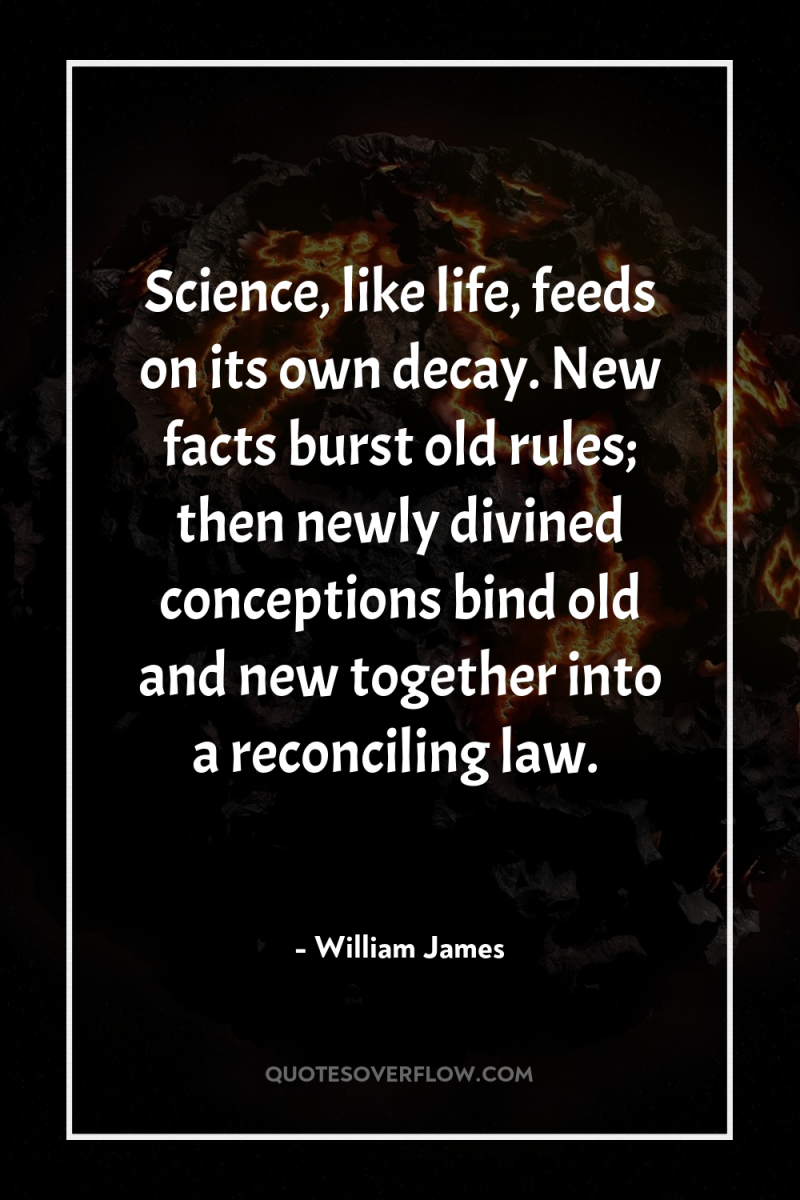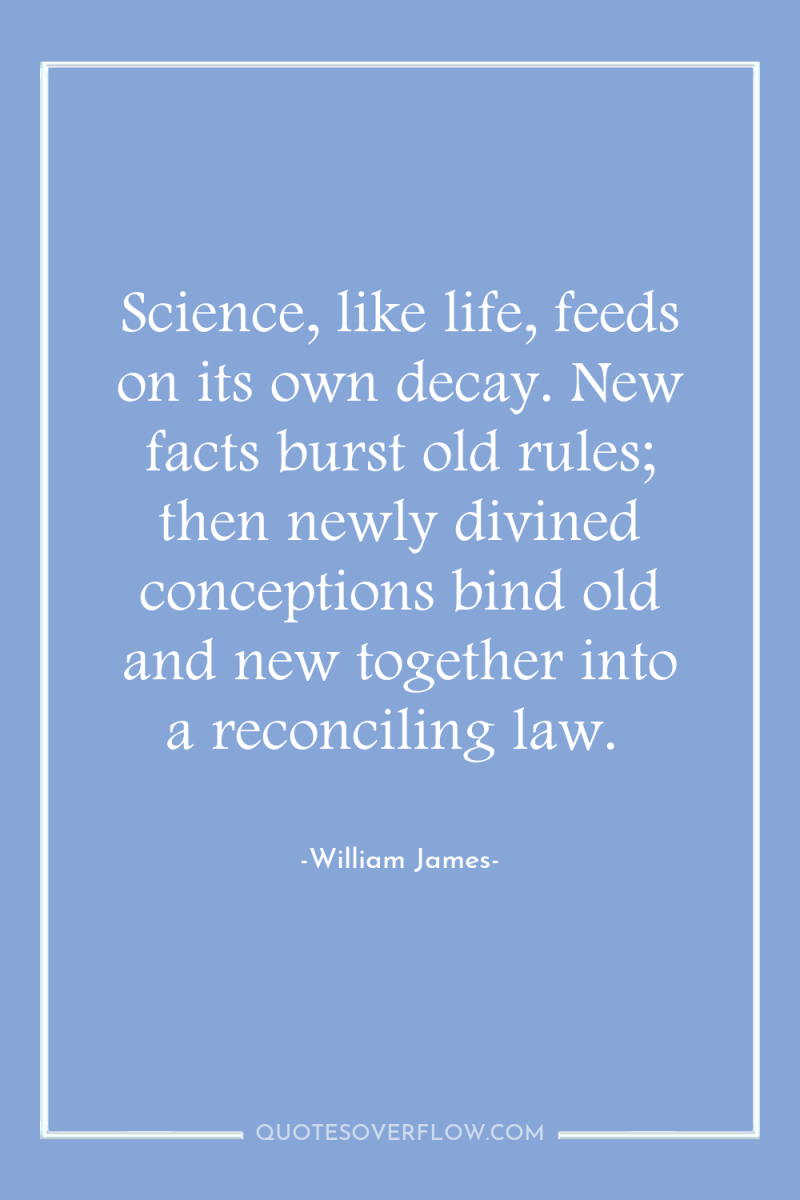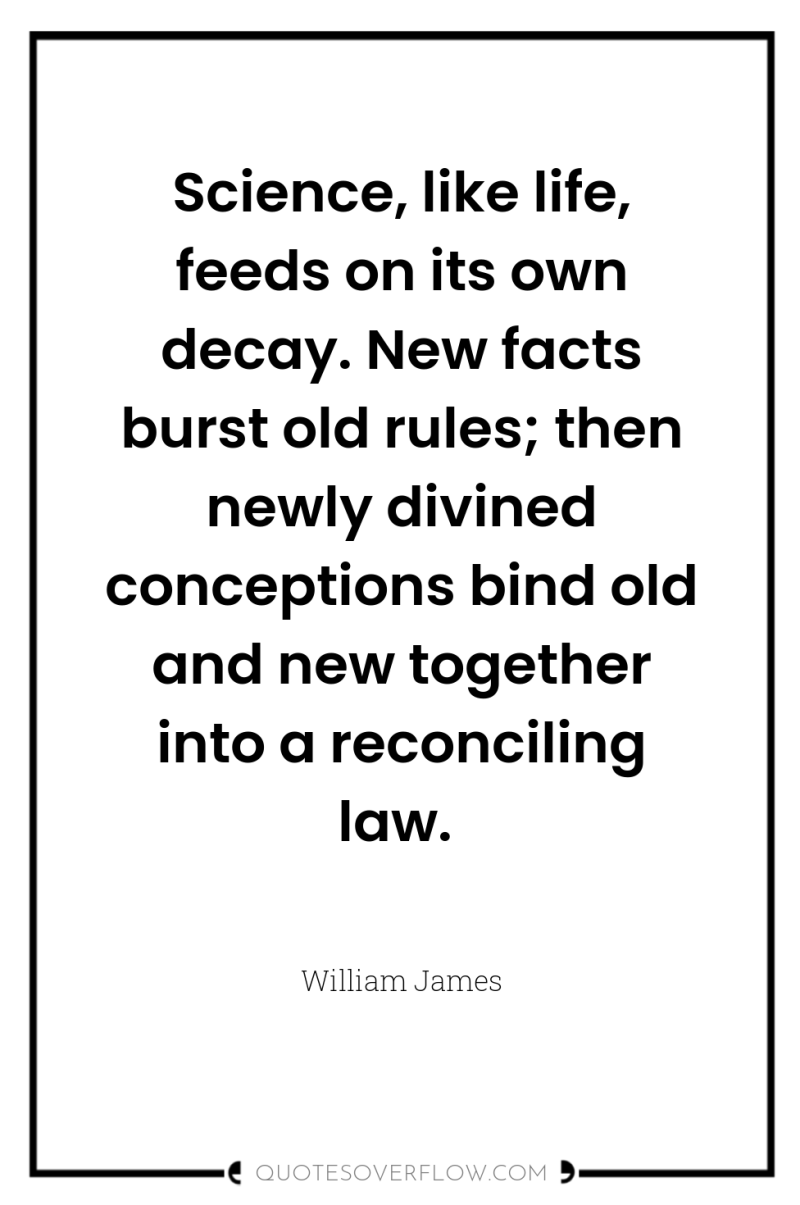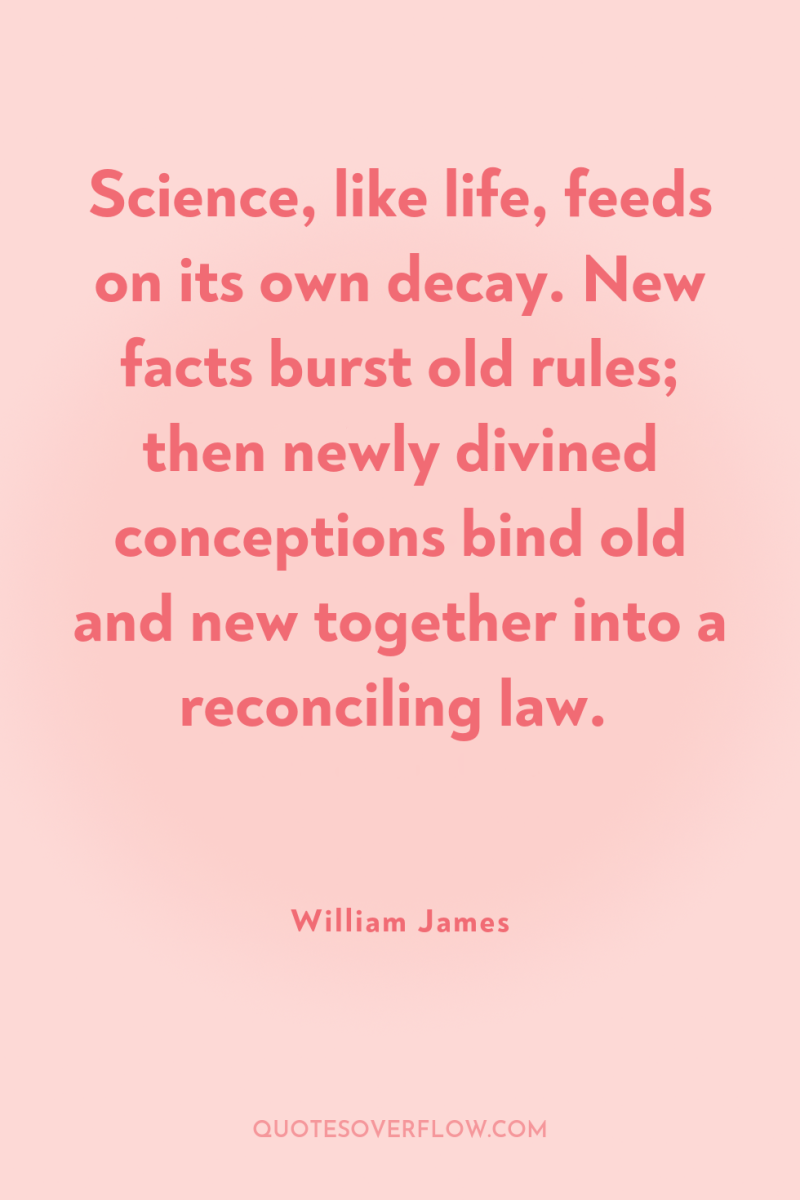William JamesScience, like life, feeds on its own decay. New facts burst old rules; then newly divined conceptions bind old and new together into a reconciling law.




About This Quote
Science, like life, feeds on its own decay. New facts burst old rules; then newly divined conceptions bind old and new together into a reconciling law.
Source: The Will To Believe And Other Essays In Popular Philosophy
Some Similar Quotes
- I do not know what I may appear to the world, but to myself I seem to have been only like a boy playing on the sea-shore, and diverting myself in now and then finding a smoother pebble or a prettier shell than ordinary, whilst...
- To know the history of science is to recognize the mortality of any claim to universal truth.
- The scientist only imposes two things, namely truth and sincerity, imposes them upon himself and upon other scientists.
- One has a greater sense of intellectual degradation after an interview with a doctor than from any human experience.
- If time be judiciously employed, there is time for everything.
More Quotes By William James
- The greatest discovery of any generation is that a human can alter his life by altering his attitude.
- Be not afraid of life. Believe that life is worth living, and your belief will help create the fact.
- A great many people think they are thinking when they are merely rearranging their prejudices.
- Pragmatism asks its usual question. "Grant an idea or belief to be true, " it says, "what concrete difference will its being true make in anyone's actual life? How will the truth be realized? What experiences will be different from those which would obtain if...
- See the exquisite contrast of the types of mind! The pragmatist clings to facts and concreteness, observes truth at its work in particular cases, and generalises. Truth, for him, becomes a class-name for all sorts of definite working-values in experience. For the rationalist it remains...